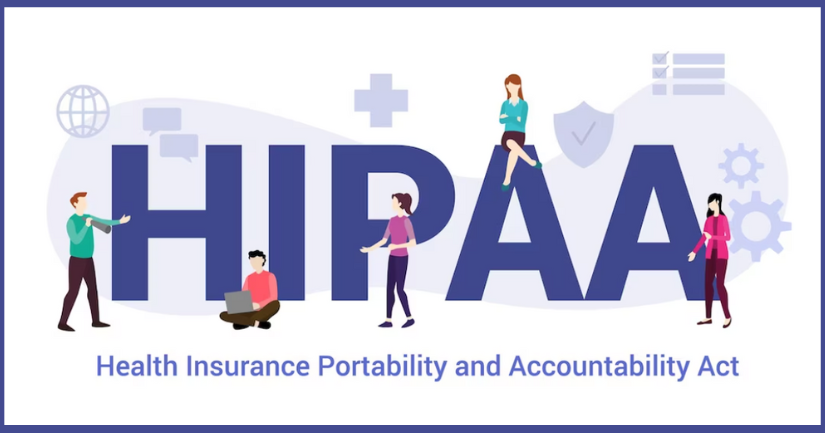
NectarSpot team, since last 10+ years, has extensive experience working with healthcare, wellness, pharma and medical clinic clients. Over a period of time, we realize - many healthcare firms (who come to us from other marketing agencies) did not execute BAA - Business Associate Agreement with their marketing agencies and other provider firms. This leads to non compliance with HIPAA laws. Healthcare providers along with their marketing partners (Agencies, CDP - Customer Data Platforms, Hosting, Email, EMR/EHR, CRM and other providers.) need to be aware of HIPAA (Health Insurance Portability and Accountability Act) laws if they are handling any kind of protected health information (PHI). Healthcare customers, including patients or their support group(s) exchange their information (PHI) via webforms, email, text, chat to providers (doctors, staff, insurance etc.) and hence they all need to be encrypted.
HIPAA, which stands for the Health Insurance Portability and Accountability Act, is a federal law in the United States that was enacted in 1996. HIPAA sets forth important standards and regulations for protecting the privacy and security of individuals' protected health information (PHI). The primary goal of HIPAA is to ensure the confidentiality and integrity of patients' medical records and personal health information.
HIPAA compliance is crucial for health and wellness providers, health plans, vendors supporting healthcare organization and others involved in handling PHI to protect patient privacy and maintain the security of health information.
Non-compliance can result in significant financial and legal consequences, so organizations in the healthcare industry invest in policies, procedures, and technologies to ensure they meet HIPAA's requirements. Compliance efforts typically involve
training staff,
implementing security measures,
conducting risk assessments, and
developing incident response plans to address potential breaches.
Covered Entities: A covered entity is defined by HIPAA regulation as any organization that collects, creates, or transmits PHI electronically. Health care organizations that are considered covered entities.
Business Associates: A business associate is defined by HIPAA regulation as any organization that encounters PHI in any way over the course of work that it has been contracted to perform on behalf of a covered entity.
A marketing technology company ( or in collaboration with IT Security vendor) with deep expertise in Cloud, Security and web applications can help a health care provider - who receives, stores, or transmits data in electronic form, by setting a set of security standards regarding the transmission of patient information. Both parties need to focus on the following aspects:
Network Security
Firewall Deployment
Password anagement
User Access
Data Backups
Recovery Plans
An Anti-Virus Policies
Web forms (or native apps) embedded in websites invariably collect PHI data from patients to provide better care.Encrypting web forms that collect Protected Health Information (PHI) is crucial for ensuring HIPAA compliance for several reasons, including data security during rest and transmission via encryption. Encryption not only secures data during transmission but also verifies the integrity of the data. It ensures that the data has not been tampered with or altered while in transit, which is critical for maintaining the accuracy and trustworthiness of PHI.
In addition to encrypting data during transmission, HIPAA also recommends encryption for data at rest, which includes PHI stored on servers or in databases. This provides an added layer of protection in case of a security breach or unauthorized access to stored PHI.
The NectarSpot team, after having extensive experience working with healthcare providers, compiled a list of web form builders that are secure and willing to sign a Business Associate Agreement (BAA) with healthcare providers to ensure compliance with the Health Insurance Portability and Accountability Act (HIPAA). Few popular web form builders that have been known to offer HIPAA-compliant services (availability of a BAA may change over time, so it's a good idea to verify their current status with the provider):
We compiled a list of digital form builders that are compliant with HIPAA. Once you switch to a HIPAA-compliant form builder, you’ll make and send forms the same way as you always have
ZohoForms
JotForms
FormStack
GoogleForms
SurveyMonkey
We use and implemented zoho forms for our healthcare clients to protect and maintain data security. Let us see the process using Zoho Forms
Step1: Go to forms.zoho.com

Step2: Click on New Form on the right corner and select your form type and name it.
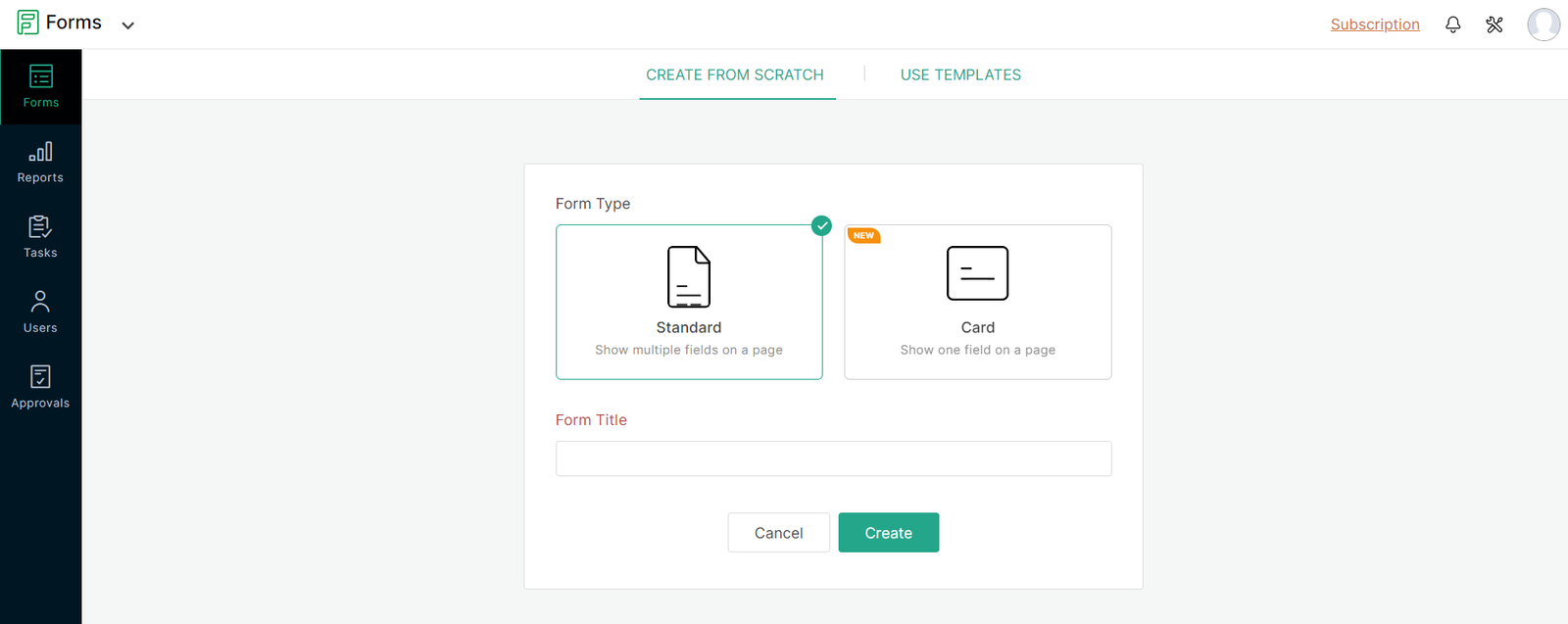
Step3: Now create your form fields using drag and drop from the left panel and name them using properties.
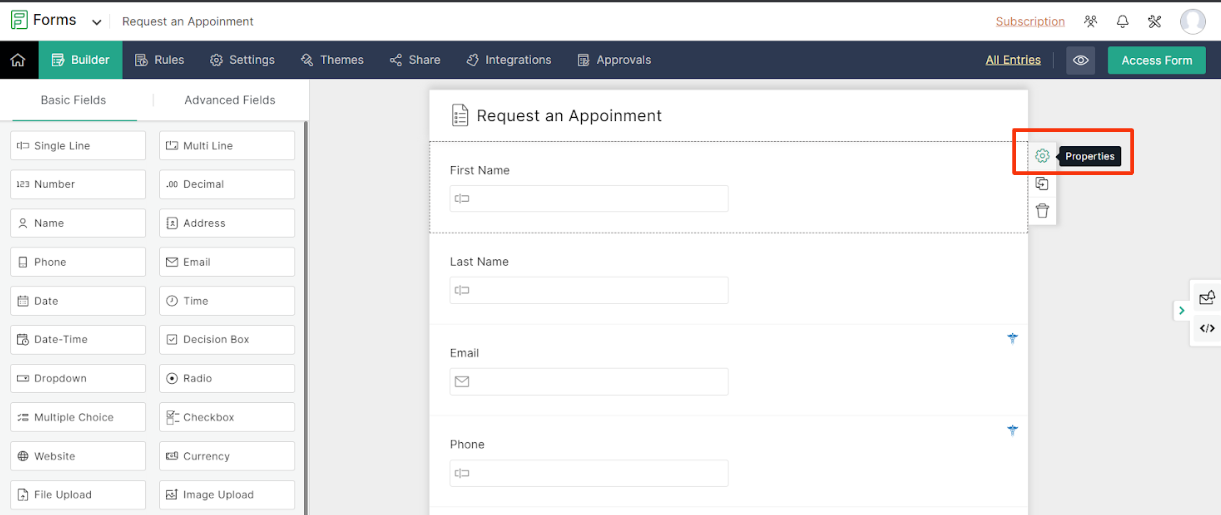
Step4: Once you edit the properties you can find privacy setting and checkmark the HIPAA option, to make the particular filed ePHI.
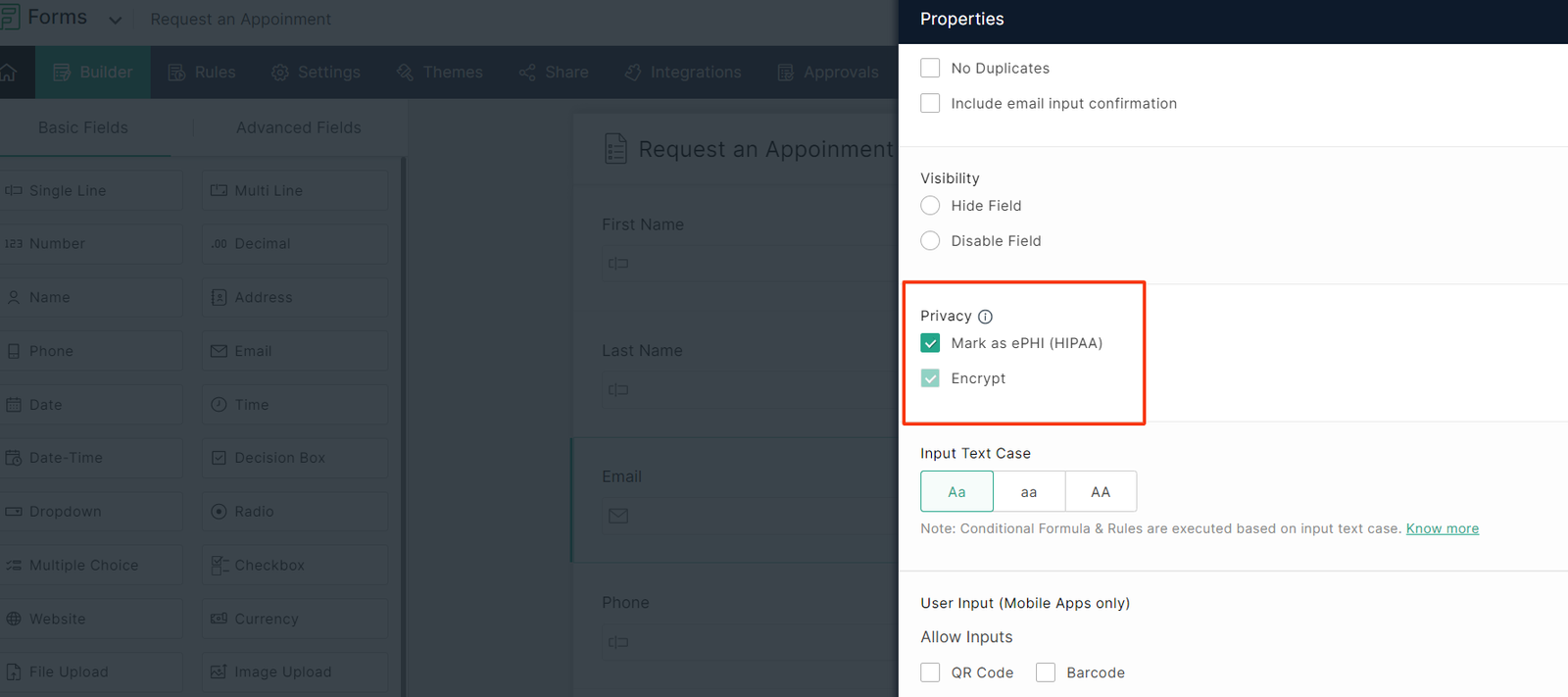

Step5: Click on proceed to make the field encrypt or HIPPA compliant, now you can see HIPAA symbol on the field you have encrypted.
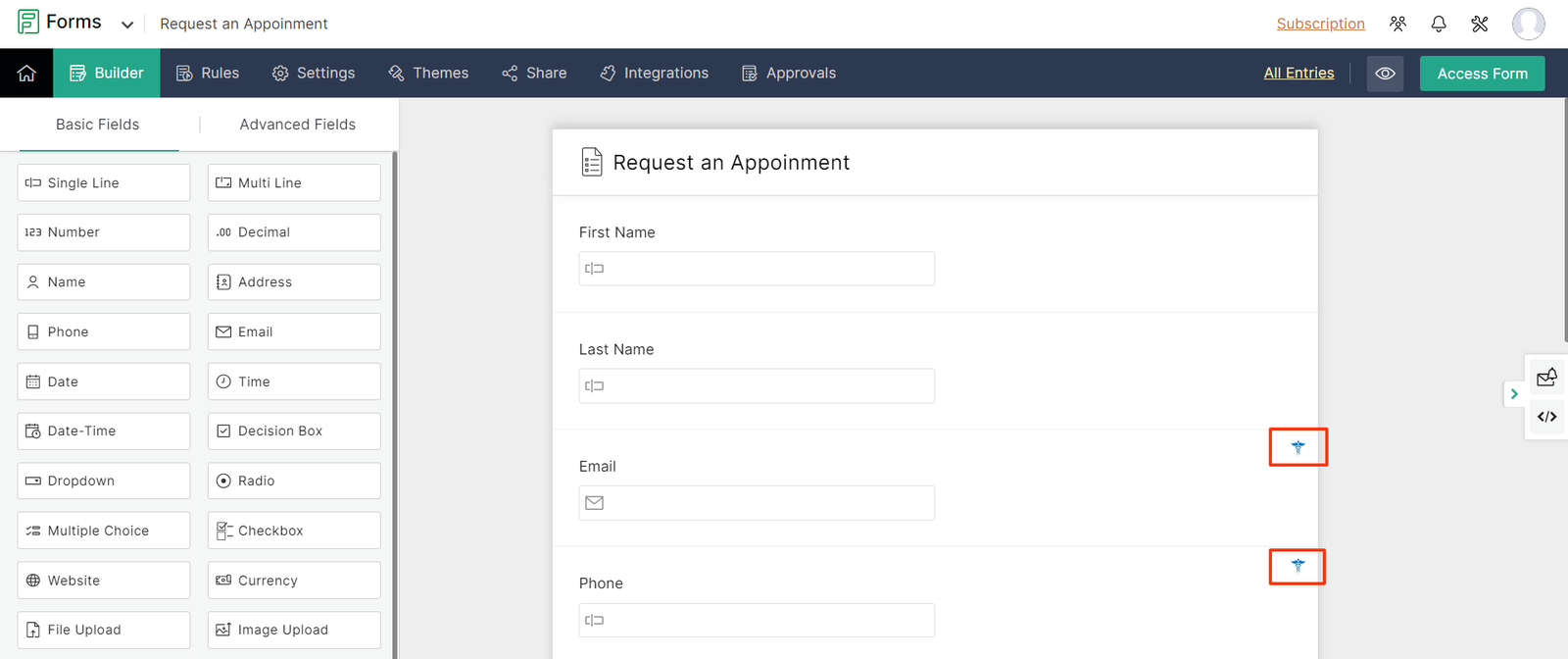
Step6: That's it, Now you can embedd your HIPPA compliant form in your website and can encrypt your data.
Please note that achieving and maintaining HIPAA compliance is a complex process that involves legal, technical, and operational aspects. It's essential to consult with legal and compliance experts who specialize in healthcare data privacy and security to ensure that your specific implementation meets all the necessary HIPAA standards and requirements.
Copyright © 2026 Website by NectarSpot Marketing, Automation, and Design Company